Description
Mieczysław Jastrun
Translated by Dzvinia Orlowsky and Jeff Friedman
Introduction by Chard deNiord
ISBN 978-1-935084-60-0
110 pages: $16.00
August, 2014
Other Purchase Options: Small Press Distribution
“Hand—compelled to strike—” Mieczslaw Jastrun writes in his poem “Knife with Red Shaft,” “do you need an angel?” A lyric poet and essayist, Jastrun survived the terrible years of the Nazi occupation and the Stalinist period in Poland, “endangered every moment,” as Czeslaw Milosz says, “because of his Jewish origin.” During his lifetime he published a dozen volumes of poetry, including A Human Matter, A Meeting in Time, Protected Hour and Memorials. Elegaic in tone, this selection from Memorials (published in 1969) presents some of his strongest, most mysterious poems. Never has his sense of mortality been stated more intensely or more precisely, “The cup extinguishes the drinker.” Jastrun concerned himself most often with metaphysics and morality. “And space/ grows emptier/ in an empty glass—,” the poet says, “the world,/four folded pages.” However, as a poet who published his poems in resistance periodicals, he couldn’t turn his back on the horrors of the genocide; nor was he able to escape historical necessity and despair in even his most mystical writings. “This wall, this air—/” Mieczslaw Jastrun writes, “after the shot,/ emptiness stood there,/ yet far/ lips—wall.” Memorials introduces in English a powerful selection of poems by one of the most well-respected Polish poets of the 20th century.
Dzvinia Orlowsky and Jeff Friedman won an NEA Translation Fellowship for their translation.
The poems in this collection of Mieczyslaw Jastrun’s Memorials as translated by Dzvinia Orlowsky and Jeff Friedman radiate like milky, incandescent light bulbs. —Poetry International
There is great sorrow in these later poems of the remarkable Polish poet and translator, Mieczysław Jastrun, whose great mastery of form and metaphysical thought are apparent throughout. The beauty of these spare lines and images both surprise and deepen the mystery of his complete engagement with experience: “Chrysanthemums, purple/ with anger, almost disappeared in shadow,” “the cup extinguishes the drinker,” “Ancient deaths/linger/in vineyard branches./Are these not stony gorges?/Is nature dead?/Don’t eat the bread/and the water isn’t for drinking.” Experience for Jastrun was a matter of faith as well as intimate revelation, not to mention survival. These are truly extraordinary poems. Hats off to their translators, who have somehow managed to bring forth both his “cold fire” and “tree of sorrow/ rooted deep in my heart.” —Philip Schultz
Reading the poems of Mieczysław Jastrun, I am reminded of Sonnet 65 in which William Shakespeare writes: How with this rage shall beauty hold a plea, Whose action is no stronger than a flower? The poems of Jastrun are testament to how it is indeed possible for a poet to show an amazing strength of art and life and spirit. I am so very grateful to Dzvinia Orlowsky and Jeff Friedman for making these necessary poems with their hard-won beauty available to American readers. —Stuart Dischell
Quintilian in Institutio Oratoria writes, “For I do not want translation to be mere paraphrase, but a struggle and rivalry over the same meanings.” In a similar vein, Orlowsky and Friedman render Mieczysław Jastrun into a new idiom, a third language in order to convey the inexplicable. As in the theological definition of translation as an act of miraculous displacement, these translations transform and enthrall the originals. Through these transformations, Jastrun’s poems return as dybbuks to fulfill their mission, to ask crucial questions: “Can we ever fully comprehend mist, arctic lichen, hoary young planets?” “Has the word become flesh?” The mullein and broom, birches and poplars and other “paragraphs of greenery” will lead us through Jastrun’s incantations. Memorials is a prayer of outcasts and exiled kings. A prayer which redeems the omnipresent trees into crosses where “every sound is a form of silence”; “where the shade of poplar mutes us like a finger held to the lips.” In these wild, extravagant lines, I feel humanity, I feel faith. —Ewa Chrusciel
Each and every strand in Jastrun’s poetry feels invested with the same dense allusiveness that haunts the poems of the two truly great masters of the age, Osip Mandelstam and Paul Celan (both originating from roughly the same corner of mittle Europa as Jastrun), the whole evolving a symbolic vocabulary for the age in the world of objects. Each and every line here contains an image of eternity, infused by the psychic human mechanisms of introjection and projection, inherent in the sacralizing impulse so concisely expressed in Williams’s phrase “no ideas but in things”, matter infused with spirit, or as the poet says: “…bring down the walls/between yourself and material things.” Unlike the work of the American modernists, this world is a wholly elegiac one, haunted as it is by a much darker history of the spirit: “I can’t see or feel faith/in these extravagances,/ only death.” Orlowsky and Friedman have done important work in giving us Jastrun in lyrical English – a book that ought to be attended. —Alex Cigale (poet, editor, translator)

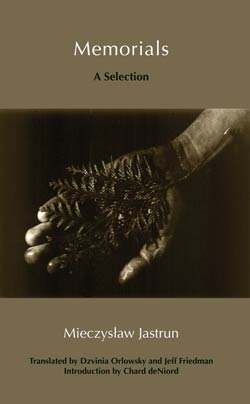
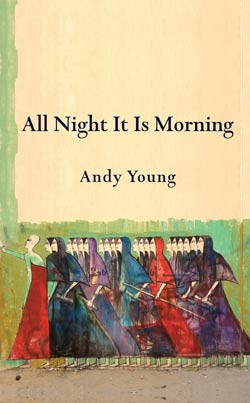
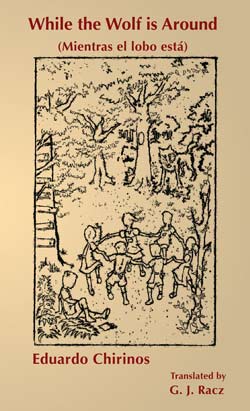
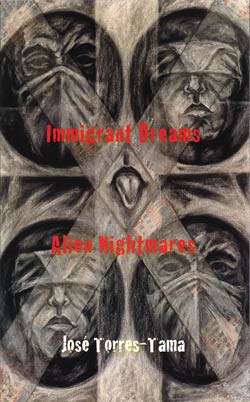
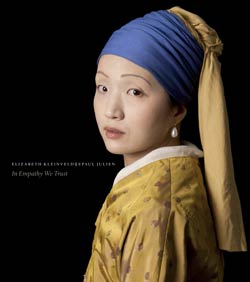

Reviews
There are no reviews yet.